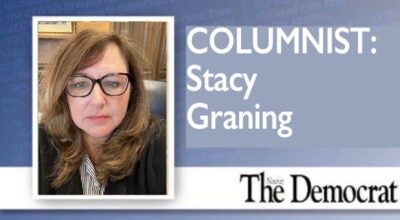Gunn doesn’t see health care as a Christian issue
Published 7:07 pm Friday, April 30, 2021
|
Getting your Trinity Audio player ready...
|
Health care advocates, many health care providers and others who desperately want to see the state expand Medicaid to cover primarily the working poor blame Gov. Tate Reeves for blocking the effort.
But on the issue of Medicaid expansion, Reeves and House Speaker Philip Gunn, who have had their share of disagreements in recent years, are in lockstep.
Gunn deserves as much of the blame or credit, depending on one’s perspective, for blocking Medicaid expansion as Reeves.
Because Gunn was ahead of nearly all of the state’s Republican leadership in support for changing the state flag to remove the controversial Confederate battle emblem from its design, and is generally credited with leading the effort to accomplish that feat, many have assumed that the third-term speaker would eventually come around on Medicaid expansion.
That has not occurred.
Gunn has often spoken of his Christian faith as a prime motivator in his support for changing the flag.
“We must always remember our past, but that does not mean we must let it define us,” Gunn said in 2015 after the tragic murder of nine people at Emanuel African Methodist Episcopal Church in South Carolina. “As a Christian, I believe our state’s flag has become a point of offense that needs to be removed.”
Gunn’s Christian faith has often manifested itself in his politics, whether it be on anti-abortion bills, anti-human trafficking efforts or the bill he authored in 2016 to allow government and private sector employees to not provide services to same-sex couples based on religious objections.
Many religious leaders who might agree with Gunn on many issues also have said their support for Medicaid expansion is based on their faith.
More than 300 Mississippi religious leaders signed a letter earlier this year in support of Medicaid expansion.
“God does not ask us at the judgment day if we have decreased the size of government. But God will ask us how we have treated the poor and how we’ve treated the most vulnerable among us,” the Rt. Rev. Brian Seage, bishop of the Episcopal Diocese of Mississippi, said during a March news conference in support of Medicaid expansion.
Perhaps in a display of the diversity of religious beliefs, Gunn — a Baptist and church leader in his hometown of Clinton — obviously does not see Medicaid expansion in the same light as Seage and other Christian leaders who signed the letter.
“I am not open to Medicaid expansion,” Gunn said at the end of the 2021 session in April. “… I don’t see Medicaid expansion as something that is beneficial to the state of Mississippi. I just don’t think the taxpayers can afford it. That is what it boils down to is the taxpayers. It is their money. I just don’t have taxpayers calling saying we want you to raise taxes so we can expand Medicaid.”
Gunn argues that the “most sick, those who are the poorest,” have health care coverage now. He said expansion is “to bring in another class of citizens who are not in the lowest category. This would be the next tier up. I just do not think we can afford it.”
In Mississippi, the disabled, poor children, poor pregnant women and some categories of the elderly are covered by Medicaid. In most instances, able-bodied adults who cannot afford private or employer-based health insurance have no health care other than going to an emergency room.
In part to curtail expensive ER visits, federal law allows states to expand Medicaid to cover primarily the working poor — as many as 300,000 in Mississippi — with the federal government paying 90% of the costs. Plus, federal COVID-19 relief legislation provides the 12 states that have not expanded Medicaid an additional financial incentive — an estimated $600 million over two years for Mississippi — to expand Medicaid. This means for at least two years, Mississippi would likely be making money by expanding Medicaid.
Even after that two-year period, various studies have contended that Medicaid expansion would generate revenue for the state because of the economic impact of the federal health care dollars coming into Mississippi.
Gunn, Reeves and many other in the state’s political leadership discount those studies. Gunn, who views many state political issues within the prism of his religious beliefs, sees Medicaid expansion solely as a program to grow the government, which he opposes as a fiscal conservative.
And as long as Gunn has those views, it is unlikely that Medicaid expansion will happen through the legislative process in Mississippi.
That is why others, including many religious leaders, will be working to gather the signatures to place Medicaid expansion on the ballot for Mississippi voters to decide. The outcome of that effort might rest on whether voters view Medicaid expansion as a religious or fiscal issue.
This analysis was produced by Mississippi Today, a nonprofit news organization that covers state government, public policy, politics and culture. Bobby Harrison is Mississippi Today’s senior Capitol reporter.



